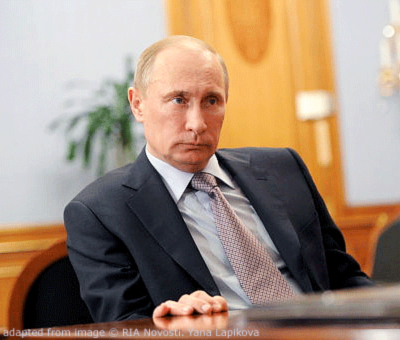Young Russians Express Growing Disapproval of Putin

(Russia Matters – russiamatters.org – Thomas Schaffner – Feb. 9, 2021)
Simon Saradzhyan, director of Russia Matters, commented that such results are “remarkable,” especially as “nearly half of 18–24-year-olds disapprove of Putin. It is his Russia that the overwhelming majority of this demographic group were born in and have grown up in. In their conscious lives, they have known no Russia other than that ruled by Putin (and his interim caretaker Medvedev) and, therefore, Putin cannot realistically blame their disapproval on the so-called turbulent 90s. Dismissing an entire demographic group as ‘agents of the West’ is not an option either. That nearly half of 18 to 39-year-olds, which represent the future of Russia, disapprove of him is a challenge that Putin needs to take seriously. Suppressing independent pollsters won’t make that discontent disappear.”
Lev Gudkov, the director of the Levada Center, noted that these results are a “continuation of a trend that has been developing for the past two years,” but the “pandemic became a catalyst for the accumulation of grievances that had developed earlier.” Gudkov argues that these results are also the product of “the actions of Alexei Navalny, the outrage at his arrest and the success of his film [‘Putin’s Palace’].”
Another recent Levada poll has revealed that 37 percent of the youngest demographic, those 18 to 24 years old, have watched Navalny’s film, “Putin’s Palace,” compared to 28 percent of those aged 25 to 39, 26 percent of those aged 40 to 54, and 23 percent of those 55 or older.
Jeff Hawn, in a recent article in Foreign Policy, argued that Navalny’s appeal to young Russians will “mobilize a new generation … who have only ever known Putin and now are imagining a world without him. Perhaps gradually a new opposition will grow from these seeds.” However, the process of transforming these attitudes into political change “will take years, and there is no imminent color revolution at hand … The current regime is too resilient, protected by layers of security forces and aligned interests.”
The source Russians gave as their primary means of obtaining news also appears to have influenced responses. Fifty-eight percent of those who identified television as their primary news source believed the county was moving in the right direction, compared to 39 percent of those who identified social media as their primary source of information.
Article also appeared, with different images, at russiamatters.org/blog/young-russians-express-growing-disapproval-putin, with different images, bearing the notice: “© Russia Matters 2018 … This project has been made possible with support from Carnegie Corporation of New York,” with a footer heading entitled “Republication Guidelines” linking to: russiamatters.org/node/7406, which bears the notice, in part:
“If you would like to reprint one of these articles, a blog post written by RM staff, one of our infographics or a fact-check, we ask that you follow these guidelines:
- Include a prominent attribution to Russia Matters as the source and link back to the original at RussiaMatters.org.
- Retain the hyperlinks used in the original content.
- Do not change the meaning of the article in any way.
- Get an ok from us for non-substantive changes like partial reprints or headline rewrites and inform readers of any such modifications (e.g., This article first appeared on the Russia Matters website with the headline “Russian Election Interference in Trump’s Own Words”).
- Let us know about the reprint and send a link!
Please note that Russia Matters cannot grant permissions for third-party content, including articles, photographs and other materials not produced by our team.
Questions? Email us at RussiaMatters@hks.harvard.edu.”
